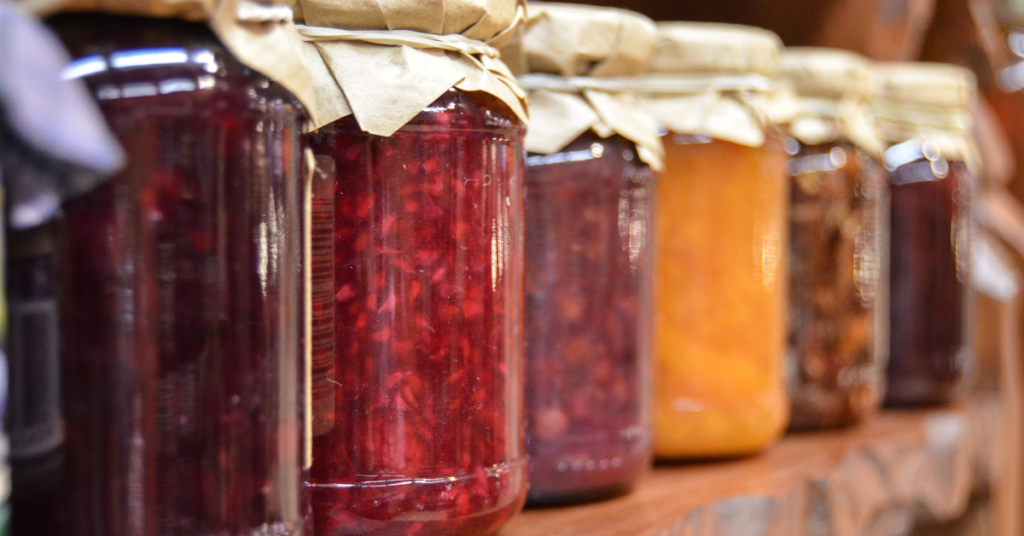As the world concentrates on essentials, food seems to determine an even more consequential place in our lives. Mouneh owns a central position in the diet alongside the hearts of the Lebanese precisely. “It’s all about celebrating traditions and preserving nature’s goodness in a jar,” Food Anthropologist Camille Cesbron says while talking about Lebanese Mouneh, which is the technique of preserving food through various methods. Mouneh was mutual, even essential, due to the distinct seasons in the olden days. This culinary tradition was born from the need to make fresh crops last through winter. A massive element of Lebanese food culture, Mouneh is considered an inviolable practice on a local level, with a growing international demand streaming from the increasing number of Lebanese expatriates and the growing global trends for high-end, ethnic food.
Manufacturing Traditional products
Before the emergence of modern technology, making Mouneh was initially a method to allow food to last longer and, more significantly, make sure food is available around for the time of year when nature isn’t as giving. With time, science and technology allowed us to access food all year round. However, that hasn’t stopped families from maintaining the tradition of making Mouneh. This process has become part of the Mediterranean culture. The production of artisanal Mouneh is improving, thanks to small producers such as cooperatives, who are increasingly participating, despite their inferior positioning in the market compared to their similar industrial peers. According to the International Labour Organization (ILO), cooperatives follow artisanal techniques and mainly employ women. These socioeconomic and gender properties attract exterior backing from donors for development projects, yet, the ILO considers this field of manufacturing traditional products to lack national recognition through authorized specifications or a valorization plan.
“This fact was suspected to affect consumer perception and, consequently, sustainable consumption due to an inability to identify origin and quality.” (Zurayk and Ghyda 2009)
Innovation In Mouneh
People have acquired a flavor for the Mouneh legacy itself rather than the original purpose it serves, especially the Lebanese who live abroad. Roy Harb, founder of Ayadina, a food company that produces traditional Lebanese Mouneh, confirms that the Lebanese diaspora is still attached to Mouneh products, which comprise a considerable component of their food diet. Roy, alongside his team, sourced Lebanon’s most cherished ingredients and transferred their carefully curated knowledge to the team that crafts Ayadinas products. According to Roy, exporting Ayadina’s Mouneh is essential for its sustainability, and they target mostly Lebanese, Turks, and Arabs through this process while also fulfilling the local market. With the lack of national recognition and governmental support, innovation in Mouneh is complex, and Roy believes it is not the easiest step to achieve.
Fadi Aziz, the Founder of The Good Thymes, a Lebanese agricultural company that uses wild Zaatar to obtain a fresh breath for traditional Lebanese savors, believes that design alongside packaging requires innovation. “For a product to go global, working on branding is essential, and we at The Good Thymes collaborate with international hotels and restaurants that prepare distinguished dishes using our Thyme.” This could be why Mouneh foods require differentiation from other similar but industrial products.
Chef Youssef Akiki presses on the significance of Mouneh, considering it the mother of the healthiest and most delicious products available, stating that the process is entirely natural. “After being obliged to substitute imports, Lebanese people are reviving their lands after years of ignoring them,” Chef Akiki, a board member of the Lebanese Syndicate of Owners of Restaurants, mentions. He notes that innovation is a combination of cultures, and with it comes chances to develop and extend into new markets. Innovation allows firms to achieve a competitive advantage over competitors, enabling them to enhance the product and services for their customers.
Strategy and sustainability consultant at QOOT, Patricia Kebbe, supposes that innovation in Mouneh is mainly about branding Mouneh to target the global market in various ways. “Targeting chefs who fusion their plates with Lebanese tastes, such as sumac, pomegranate molasses, and zaatar, alongside food bloggers who market every product in their way, is a method to brand the Mouneh products,” Kebbe adds when asked about branding and innovation.
The Lebanese food startup, Grapeful, is an excellent example whenever noting innovation in Mouneh. Bahaa Kadamani, developed his grandfather’s unique recipe of grape molasse to produce healthy snack bars, adding modern production techniques and a preference for healthy ingredients native to the Mediterranean region, such as Tahini, Carob, Chickpeas, Cardamom, and Nuts. Bahaa notes that this idea was created in 2017 after launching a natural grape syrup used as a topping for oriental sweets. Grapeful is shipping its products to the USA after earning its FDA accreditation. Bahaa insists on the importance of clusters through this process, where reaching information and understanding the requirements to export becomes more attainable.
Part of the Lebanese Economy
The reputation of Lebanese cuisine at a global level denotes the culinary richness of this small Mediterranean country. The main components in the Lebanese kitchen entail various traditional products that maintain a cultural value, called Mouneh. Today, rural food processing manufacturers extend this cuisine by producing traditional foods. Food processing manufacturers and cooperatives could intervene socially in alleviating poverty, improving livelihoods, and mitigating food insecurity threats through the mobilization and shelf-life extension of fresh local products. Currently, Lebanon is facing a multifaceted crisis related to its economic downfall. This market potential in the Mouneh field might be essential in solving one of the issues. Clusters could encourage manufacturers to reorganize concrete networks to scale up production, highlight product quality, and benefit collectively. “Food is a lot more than restaurants,” Chef and American film director Eddie Huang mentioned while discussing cultural identity. Lebanese Mouneh is a school, identity, and culture that honors the Lebanese heritage by reminding us about the hard work required to achieve sustainable living.







